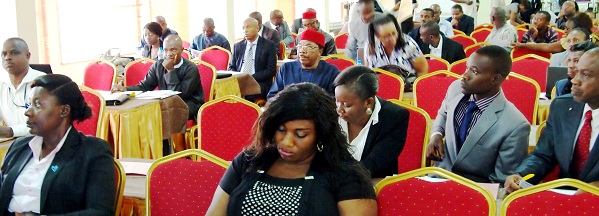May 2013
- Posting by PRAWA
- News


- Provision of infrastructure particularly in the rural areas.
- Popular participation of the people in governance especially with regards to freedom of expression
- Unemployment
- Capacity of State institutions to deliver development programmes.
Key and major security challenges in Enugu State include:
- Theft
- Burglary
- Armed robbery
- Kidnapping
- Assassinations
- Gang related violence like cultism
- Political violence.
- Domestic violence
- Gender based violence
- Sexual violence/rape etc
The Government of Enugu according to the study is responding to the security and governance challenges in Enugu State in the following ways:
- Use of excessive force
- Road blocks
- Shoot at sight orders
- Aggressive stop and search exercise
- Community policing
- Vigilante groups, Neighborhood watch associations etc.
The study shows that government crime control measures have often proved ineffective because of the following reasons:

- Involvement of government officials and their cronies in violent crime.
- Governments have shown very low interest in seemingly ‘small’ crimes like rape, burglary, lost of property through theft. The government prioritized crime into high and low categories.
- Failure of security agencies to engage some sections of the society like youth and women in crime prevention
- Failure of government to fully utilize all it has to fighting crimes.
The people of Enugu State have responded to security challenges in the following ways:
- Hire of private guards.
- Purchase of Security gadgets.
- Reliance on police protection.
- Establishment of communal security associations.
- Prioritization of security
Income as a major determinant of how citizens respond to security challenges was another highlight in the Enugu study. Wealthy individuals respond to security challenges by buying security gadgets, engage police for protection and hire private guards while the middle income earners respond by buying security gadgets, get police protection and get involved in the coordination of communal security groups or associations. The low income earners respond by organizing communal security groups and associations. In fact the low income earners get involve by being part of the vigilante groups themselves, keeping the watch and or being the vigilante members themselves.
The study also brought out the implications of dependence on private and communal security arrangements. Dependence of
Enugu State citizens on private and communal security set-ups have brought the following trend:
- Large concentration of small arms in private hands. Large amount of arms can now be found in the hands of private individuals.
- This has inspired the proliferation of vigilante groups whose activities are not well coordinated and monitored.
- This has led to very huge economic loss to the State.
- It has created and keeps creating unnecessary social barriers.
The study recommends widening the participation of citizens in governance, encouraging freedom of expression and engaging in greater consultation with the people as some of the effective ways of reducing the numerous security and governance challenges in Enugu State.
